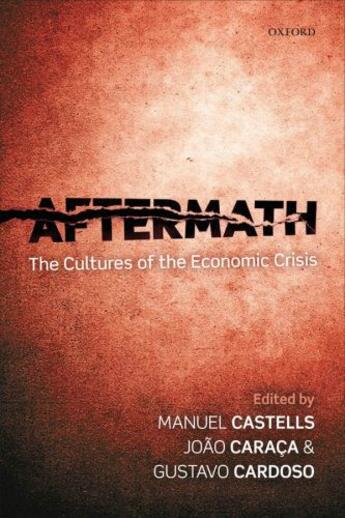-
Nombre de pages : (-)
-
Collection :
(-)
-
Genre :
(-)
-
Thème :
Non attribué
-
Prix littéraire(s) :
(-)
Résumé:
The crisis of global capitalism that has unfolded since 2008 is more than an economic crisis. It is structural and multidimensional. The sequence of events that have taken place in its aftermath show that we are entering a world that is very different from the social and economic conditions that... Voir plus
The crisis of global capitalism that has unfolded since 2008 is more than an economic crisis. It is structural and multidimensional. The sequence of events that have taken place in its aftermath show that we are entering a world that is very different from the social and economic conditions that characterized the rise of global, informational capitalism in the preceding three decades. The policies and strategies that intended to manage the crisis-with mixed results depending on the country-may usher in a distinctly different economic and institutional system, as the New Deal, the construction of the European Welfare State, and the Bretton Woods global financial architecture all gave rise to a new form of capitalism in the aftermath of the 1930s Depression, and World War II.
This volume examines the cultures and institutions at the root of the crisis, as well as the conflicts and debates that lead to a new social landscape, including the rise of alternative economic cultures expressed in the social movements occupying Wall Street. The book presents the results of a shared project of reflection by an interdisciplinary group of researchers from around the world. It contends that there is no quick fix to the current financial and political system. Life beyond the crisis requires a transformation of the mindset that led to bankruptcy and despair, and to economies and societies based on an unsustainable model of speculative finance and political irresponsibility. The book explains why and explores the contours of the world emerging in the aftermath of the crisis.
Donner votre avis















